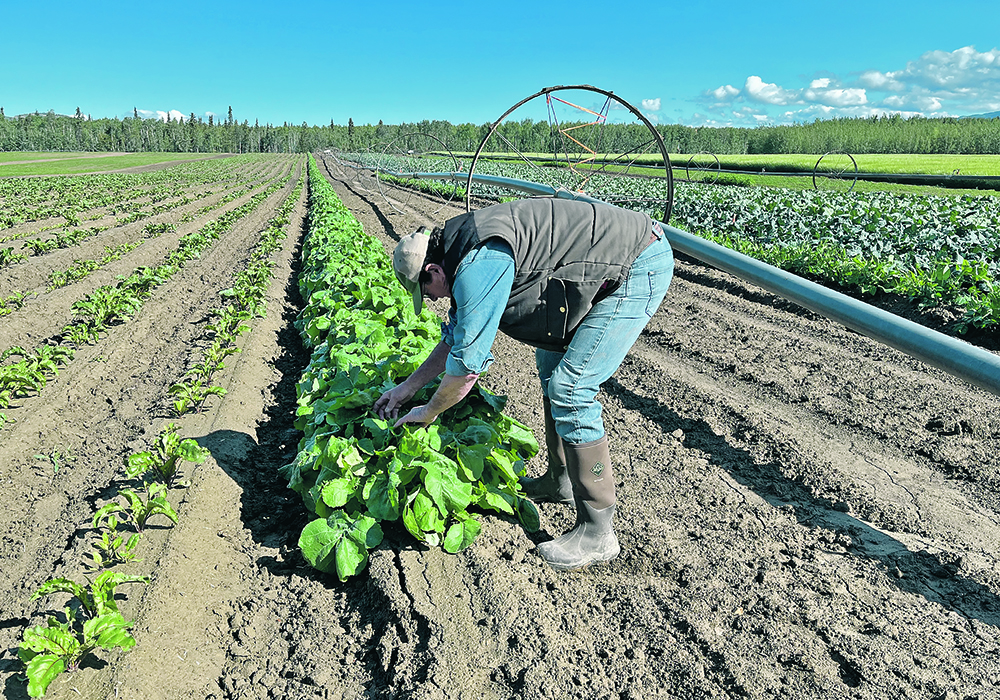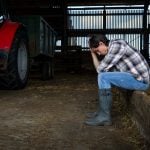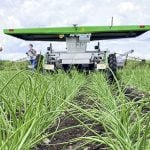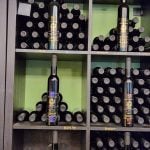Former Alberta producers grow wheat, oats, peas, barley, camelina, canola and a wide variety of vegetables in the Yukon
WHITEHORSE — Thirty kilometres from Whitehorse, amid the mountains and the forest, canola is blooming bright yellow.
The colour is unexpected, unlike the Prairies where it is so common.
Yukon Grain Farm has been growing Polish varieties for the last four years. It’s a value-added proposition for the operation, which has a small crusher and produces its own oil to add to the livestock feed it sells.
Read Also
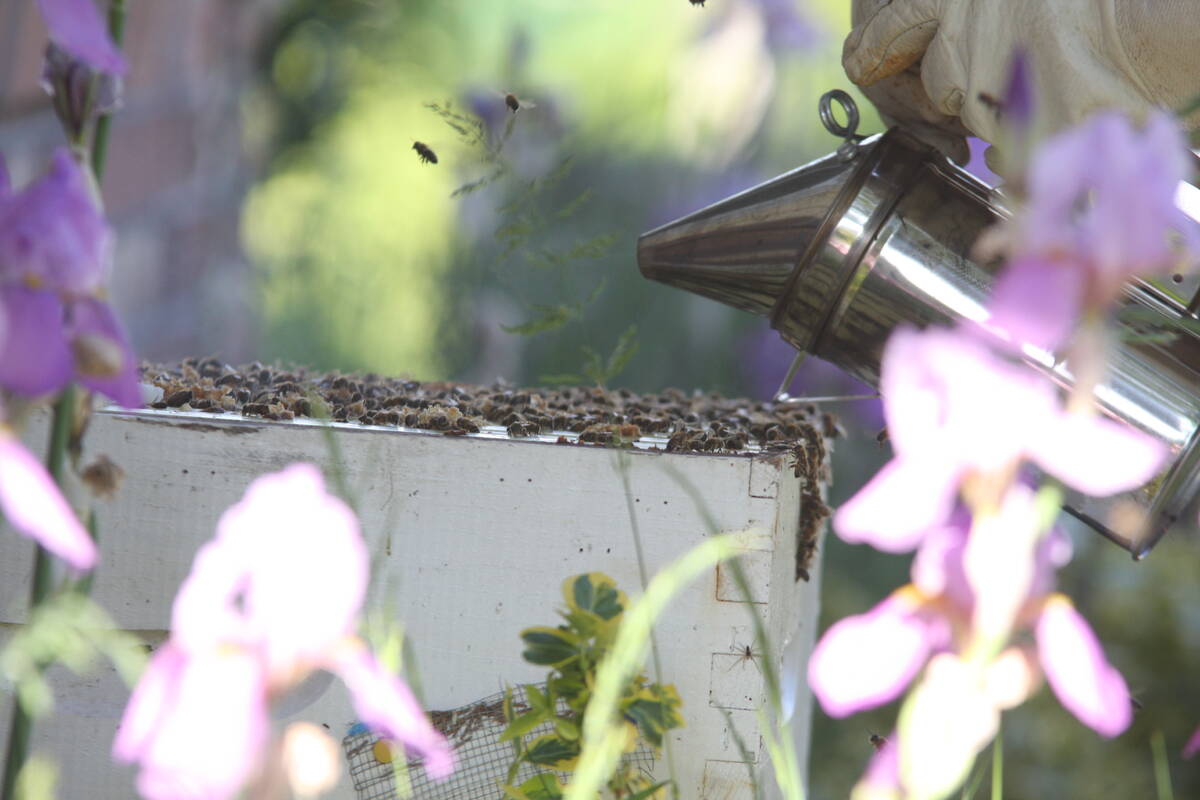
Manitoba beekeepers battle for survival
Honeybee colony losses have hit 43 per cent, making 2025 the latest in a string of poor bee survival years for Manitoba’s honey producers
Self-sufficiency is key in the North.
Steve and Bonnie MacKenzie-Grieve started growing potatoes here in 1999. At that time, they travelled back and forth to their home in southern Alberta.
In 2004, they permanently moved from Coaldale and began farming in earnest, even though they planned to semi-retire and grow some grain.
Instead, they are producing all types of crops, vegetables and berries, selling into Whitehorse grocery stores and supplying livestock producers with feed.
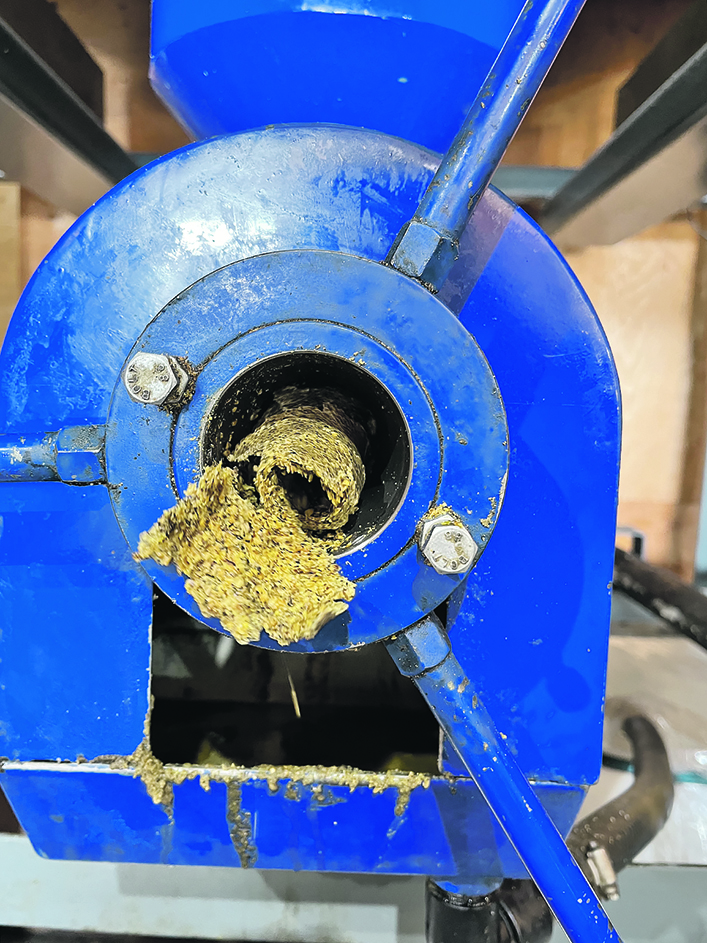
“The reason we do so many things is there’s not enough market of any one thing to make the farm work,” Steve said during a walk on an old RCMP trail that cuts through their farm.
“If we were just to raise grain and make feed, we could do it, but it would be two people. By doing it the way we do now, we have year-round work for seven or eight people.”
They now grow wheat, oats, peas, barley, camelina and canola, along with potatoes, carrots, beets, cabbage and other vegetables. The farm features 500 tonnes of state-of-the-art potato storage, which keeps the root crops in condition until cleared out for the next crop.
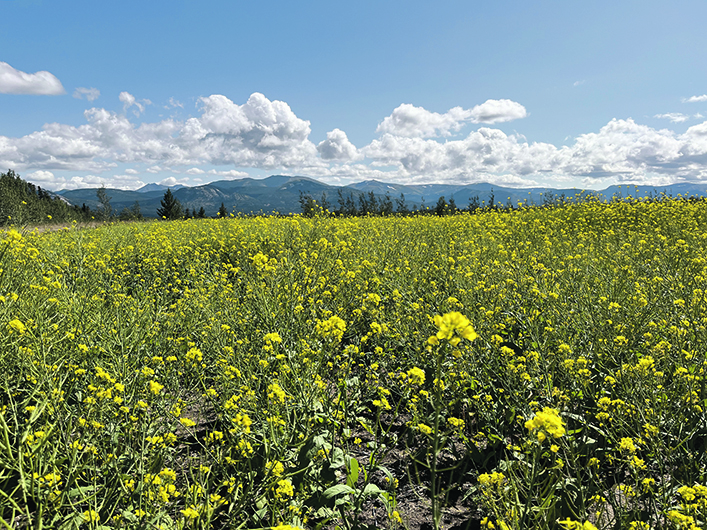
In any given year, the MacKenzie-Grieves grow 300 to 400 acres of grain, some on land rented from neighbours, and 35 acres of vegetable crops. They sell the grain, which all requires drying, in 25-kilogram bags off the farm in different feed formulations for chickens, pigs, beef and dairy cattle. Straw sells, too, including to people who use it to insulate walled tents they live in for the winter.
“Everything is picked up at the farm,” Steve said, except for the vegetables.
The farm delivers those to retailers in Whitehorse, including Superstore, Wykes Independent and Save-on Foods.
“We have had a very good relationship with Loblaws. It’s been 20 years and we’ve never had a glitch,” he said.
By extension, they have a good relationship with their customers.
That is critical to agriculture in the Yukon.
Hay was the dominant crop for many years, but the demand for food increased as the population more than doubled in the last 25 years.
Yukoners are willing to pay more for locally grown food. They recognize the quality and the challenges farmers face with the short growing season.
“We can raise a potato in 49 days,” Steve said.
Some crops such as cucumbers and tomatoes are grown in greenhouses, and some of the farm workers have their own vegetable projects on the go to sell garlic, beans and other food.
There are other vegetable producers, too, and they all sell into the same market.
“Down south, you just throw it in the pot and it goes all over the world,” he said of grain production.
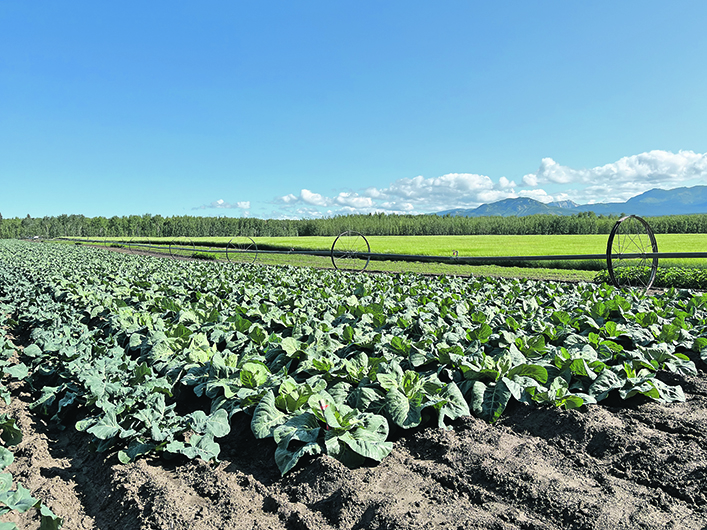
“Here there is that bit of competition because you are selling to the same people. They only eat so many potatoes, carrots … how much of that market share can we obtain? You need that guy to come back the second time. We don’t have an endless number of first-time buyers.”
Steve said a lot of people talk about food security in the North, but the real issue is food vulnerability because they rely on a highway to bring most food from the south.
Yukon Grain Farm irrigates out of Lake Laberge, a widening of the Yukon River that runs near their property. A water licence is required, but use is unlimited.
Irrigation equipment is actually how the family ended up in the territory in the first place. Some outfitters from the Yukon were in southern Alberta looking for such equipment in the early 1990s. Steve hauled some up for them and went back a few times.
“The North has always been a lure to me,” he said.
About the same time, his father was looking to retire. He looked after the farm and Steve’s fish farm at Chin, Alta., while he was insulating potato storage facilities and other buildings across the Prairies.
One of Steve’s sons took over the business and Steve and Bonnie embarked on their new adventure.
Just last year he sold three quarters of irrigated land he had held on to in Alberta.
“That took a big financial burden off,” he said.
“Selling that farm really put us in a good spot.”
Their investment in the Yukon farm is huge. There are no farm equipment dealerships or repair shops if something breaks down. All equipment had to be brought in from elsewhere, and spare parts have to be on hand or they wait for items to come from Edmonton or Grande Prairie, Alta.
Steve said he doesn’t think they would be able to do now what they did 25 years ago. Costs have gone up considerably, but farm income hasn’t kept pace.
“Since then, the sales price of our veggies has doubled but the cost of production and the equipment cost has outpaced revenue increases.”
He said Farm Credit Canada was a big help and could see his vision of agriculture in the Yukon.
Experience has been a good teacher and they’ve learned to adapt.
For example, they plant vegetables in hills to deal with the cold soil.
They tried mustard plow-downs for pest and weed control with limited success and found it takes two years to break down straw in cold soil that lacks organic matter, microbes and earthworms.
In summer the long days help.
“It can get cold here, but I’m positive that we have more days in the Yukon where you work outside than we did in southern Alberta,” Steve said.
Aside from the cold and short seasons, there are challenges with weeds, pests and rotations. Sometimes summerfallow is the only way to gain control.
Initially, finding good workers was difficult but they now have a crew they consider more partners than employees.
“I’m the bookkeeper,” said Bonnie.
“We are GAP (good agricultural practices) certified, so I do the audits and all the paperwork for that, and I bag carrots two days a week.”
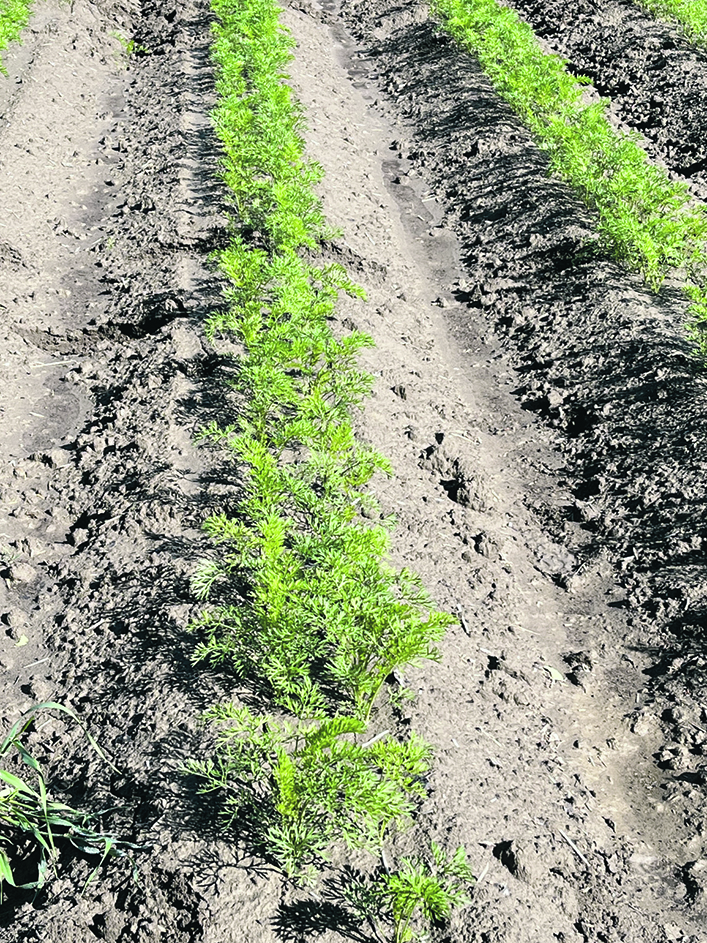
She grew up in Creston, B.C., living next door to her grandfather, who had a dairy and then a mixed farm.
“When we came up here, it was a good feeling for me because it reminded me of B.C.,” she said.
“I was quite happy to come, other than uncertainty about the long winter.”
She said the hardest part is the short season without a true spring or fall. It’s hard to get all the projects done.
They both said winters have become much nicer than they used to be.
“They’re warmer than they were,” Bonnie said.
“They used to get 50, 60 below here, and now we’re more like 40, and that’s not for very long, either.”
Their daughter, Leslie, is part of the farm now, and with grandchildren to see daily, the couple said retirement is in the cards — or maybe at least slowing down.


